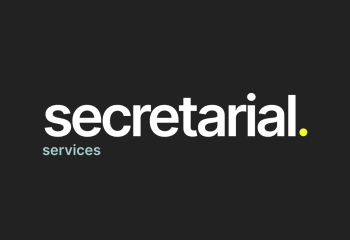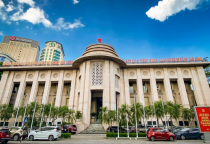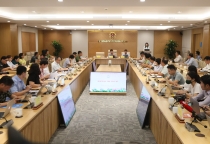KEY POLICIES COMING INTO FORCE FROM JULY 1, 2025
Views: 1591
(2).png)
1. From July 1, 2025, until the end of 2026, a series of fees will be reduced by 50% by the Ministry of Finance to support citizens and businesses
Details: As of today, July 1, 2025, the following fees are reduced by 50%: business registration fees, licensing fees for the establishment and operation of banks and non-bank credit institutions; appraisal fees for restricted goods/services; fire safety design approval fees; construction project appraisal fees; certificate of origin (C/O) fees; airport and aerodrome concession fees.
Other types also reduced by 50% include: license fees for sending workers abroad; appraisal fees for international and domestic travel business licenses; fees for ID card/passport reissuance; fees in the health and securities sectors...
Impact:
• Eases business operation burdens
• Helps businesses and citizens stabilize operations
• Contributes to economic recovery and growth
2. VAT reduced from 10% to 8% until the end of 2026, with expanded eligible subjects
Details:
According to Resolution 204/2025/QH15, the VAT rate continues to be reduced by 2%, from 10% to 8%, for goods and services not listed in the exemption list: telecommunications, finance, banking, securities, insurance, real estate, metal products, mining products (except coal), and products/services subject to special consumption tax (except gasoline).
Applicable period: From July 1, 2025, to December 31, 2026.
Impact:
• Reduces input costs for businesses
• Supports consumers and stimulates domestic consumption
• Continues the expansionary fiscal policy from 2022–2024
3. E-commerce platforms must withhold and pay taxes on behalf of business households and individuals
Details:
According to Decree 117/2025/NĐ-CP, from July 1, 2025:
E-commerce platforms with payment functions must withhold and pay VAT and personal income tax (PIT) on behalf of business households and individuals operating on their platforms.
• VAT withholding rates: 1% for goods, 3% for transportation, 5% for services.
• PIT withholding rates for resident individuals: 0.5% for goods, 1.5% for transportation, 2% for services.
• PIT withholding rates for non-resident individuals: 1% for goods, 2% for transportation, 5% for services.
Platforms without payment functions must provide periodic data to tax authorities but are not required to withhold and pay taxes for sellers.
Impact:
• Enhances transparency and reduces tax evasion in online business
• Increases the responsibility of e-commerce platforms in seller management
4. Personal tax codes for individuals and households replaced with personal identification numbers
Details:
According to Circular 86/2024/TT-BTC, from July 1, 2025, tax codes for individuals, business households, and family households will be converted into a 12-digit personal identification number (matching the ID card number) of the individual or household representative. The conversion will be updated automatically by tax authorities.
Impact:
• Synchronizes personal and financial information
• Facilitates tax lookup and management
• Prevents duplicate tax code registration
5. Enterprises not allowed to use cash to pay invoices under 20 million VND from July 1, 2025
Details:
According to Clause 2, Article 14 of the 2024 VAT Law, from July 1, 2025, all input goods and services must be paid using non-cash methods, except for specific cases defined by the Government.
Impact:
• Enhances financial transparency
• Reduces tax fraud risks
• Promotes convenient payment methods
6. Tax authorities and addresses updated based on new administrative boundaries
Details:
Regional tax offices have issued notices to update invoice addresses according to new administrative boundaries effective from July 1, 2025. Enterprises are not required to change their registered address, but invoice addresses must be updated accordingly. The tax office notice serves as a basis to explain discrepancies between invoice and business registration addresses.
Tax authorities are also being restructured at the provincial level, resulting in new names. Enterprises should update this information before submitting tax returns to avoid rejection.
7. New participants in Social Insurance after July 1, 2025, will no longer be eligible for lump-sum withdrawal
Details:
According to the amended 2024 Social Insurance Law, employees joining Social Insurance after July 1, 2025, will not be allowed to withdraw one-time Social Insurance, except in the following special cases:
• Suffering from serious illnesses (cancer, paralysis, etc.),
• Permanently emigrating abroad,
• Having a ≥ 81% reduction in working capacity.
Impact:
• Reduces early withdrawals, preserving retirement benefits
• Ensures the sustainability of the pension fund
• Increases communication and management pressure for labor authorities
8. More subjects required to participate in compulsory Social Insurance from July 1, 2025
According to the amended Social Insurance Law and Decree 158/2025/NĐ-CP, from July 1, 2025, the following groups are added to the mandatory Social Insurance system:
-
Part-time workers earning equal to or above the minimum threshold for SI contribution
-
Household business owners with business registration
-
Non-salaried managers of businesses and cooperatives
-
Spouses on official assignments abroad receiving living expenses
-
Permanent militia
This marks a significant expansion to include informal and non-traditional workers, moving toward universal Social Insurance coverage.
Note: The base salary is no longer used as the contribution reference. Instead, the Government will annually announce a benchmark salary for contributions—ensuring transparency and long-term fund security.
9. Court system restructured into 3 levels: Regional – Provincial – Supreme
Details:
According to the amended 2024 Law on the Organization of the People’s Court, effective July 1, 2025:
The court system will be reorganized into:
• Regional People’s Courts (replacing district level)
• Provincial People’s Courts
• Supreme People’s Court
Impact:
• Improves trial efficiency and case handling
• Reduces procedural overlap
• Enhances judicial resource coordination at the regional level
10. Commune-level People’s Committee Chairpersons authorized to issue first-time land use certificates (“red books”)
Details:
Decree 151/2025/NĐ-CP authorizes commune-level Chairpersons to sign the first land use right certificate for households or individuals if the land meets all legal conditions: no disputes, clear zoning.
Impact:
• Reduces processing time for land applications
• Shortens administrative procedures and eases district-level burden
• Increases proactiveness of local authorities
11. Civil servant job positions classified into 3 distinct groups
Details:
According to the amended 2024 Law on Cadres and Civil Servants (Article 24), civil servant job positions are classified into 3 groups:
• Leadership and management
• Professional and technical roles
• Support and service positions
Impact:
• Clarifies job descriptions
• Forms the basis for competency frameworks and performance evaluation
• Helps government agencies with better human resource planning
--
Date: 01/07/2025














(2).png)

![[LEGAL UDATE DECEMBER 2024] DECREE NO. 117/2024/ND-CP [LEGAL UDATE DECEMBER 2024] DECREE NO. 117/2024/ND-CP](thumbs/210x144x1/upload/news/phong-hanh-chinh-nhan-su-8930.webp)


![[LU 12.2024] DECREE 125/2024/ND-CP [LU 12.2024] DECREE 125/2024/ND-CP](thumbs/210x144x1/upload/news/aaron-burden-1zr3wnstnvy-unsplash-7173.jpg)



![[LEGAL NEWSLETTER OCTOBER, 2024] DECREE NO. 118/2024/NĐ-CP [LEGAL NEWSLETTER OCTOBER, 2024] DECREE NO. 118/2024/NĐ-CP](thumbs/210x144x1/upload/news/pexels-artempodrez-8519083-4571.jpg)






